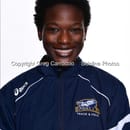On Monday, September 18th, the Criminal Justice and Sociology department brought Journalist Wesley Lowery to La Salle University. Over 120 La Salle students, faculty, and community members, got the chance to hear Mr. Lowery speak about his journey from an aspiring young journalist to the author of They Can’t Kill Us All: Ferguson, Baltimore, and a New Era in America’s Racial Justice. Everyone had the chance to listen to Lowery speak about the problems facing this nation regarding the increase in police brutality and discrimination against people of color. The audience members were encouraged to ask questions regarding these issues at the end of the ‘talk’ and Lowery answered each with poise and confidence.
Lowery highlighted an array of topics in the hour-long discussion, but he specifically put an emphasis on his experiences during the three months that he spent in Ferguson, Missouri after Ferguson police officer, Darren Wilson, fatally shot 18-year old Michael Brown in August of 2014. Lowery spent most of his time in Ferguson listening and talking with the Black Lives Matter activists who protested in the streets, demanding answers, for many weeks following the shooting.
When Lowery left Ferguson, he wanted to explore this issue of police using fatal force on American citizens even further. Most of the time, government officials and police stations claimed that they “didn’t have any records of how many citizens were shot by police every year”. Lowery described this as a “holy shit moment.” He thought it was pretty alarming that the US government officials told him “No, we don’t really know how often the government kills people.”
In light of this response he formed a “team” of his colleagues who started finding articles published from local media outlets around the United States. The journalists kept track of all the shootings that happened over the year, and they found that about 992 citizens were fatally shot by police officers. Lowery and his team analyzed details about each shooting and then classified each into categories based on the race of the victim and whether they were unarmed or armed. Their research proved that white men were almost always armed and black men were almost always unarmed.
Once the investigation concluded, Lowery said that he did a lot of thinking and was bothered by one thing. The reports and the data only proved what black Americans had been saying for generations. Lowery said that once he came to this realization, he knew that as a journalist and an advocate for social justice, he “needed to believe people when they are telling their truths.” In my eyes, this is a great life lesson that we should all think about a little more often than we do.
I think that having a profound figure like Wesley Lowery come speak at La Salle University was something students, faculty, and community members all needed. I feel that as college students, we sometimes tend to forget about what events are going on outside campus boundaries. Yes, police brutality tends to be an extremely controversial topic and some probably think it is “taboo”, something that no one should really talk about. With the current political climate being the way, it is, we all need to keep talking about these issues freely or this nation will never truly be united.



